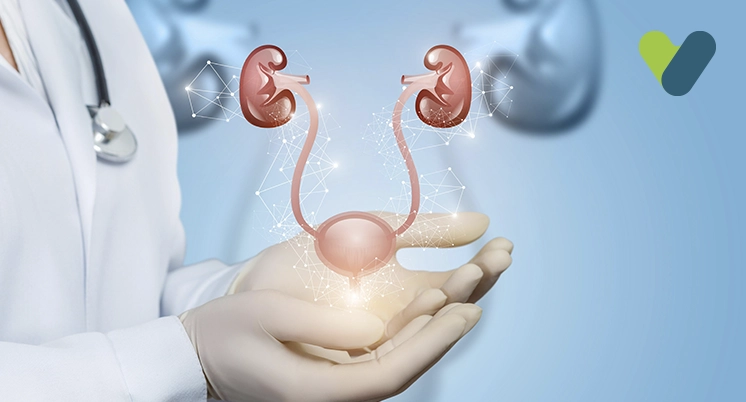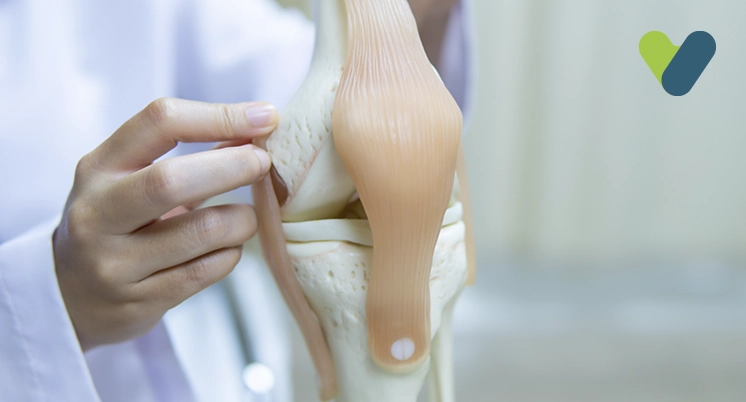Overview
Heart surgery/cardiac surgery is performed to address heart issues. Once lifestyle modifications, medications, or other treatments become ineffective, a doctor may suggest surgical intervention to a patient. For example, emergency cardiac surgery may also be performed when a heart attack occurs. More than 2 million individuals undergo open heart surgery annually to treat different cardiac conditions. Any age group can undergo heart surgery/cardiac surgery.
The doctor might advise a certain kind of cardiac surgery depending on the heart defect of the patient. They can include open-heart procedures that might have a lengthier recovery period as well as minimally invasive surgical treatments. A healthcare provider may prescribe testing before surgery to identify the best form of cardiac surgery.
The risks of cardiac surgery increase if the procedure is done urgently (for instance, to treat a heart attack), as well as if the patient has additional medical conditions like diabetes or kidney issues. The results of heart surgery are frequently excellent. Heart surgery can reduce symptoms, raise the quality of life, and boost overall survival.
The cardiac surgery cost varies depending on the type of heart surgery required for a specific heart condition as well as the location of the hospitals. The average cardiac surgery cost in India is between INR 1.25 and 3 lakh.
Who needs heart surgery?
Heart surgery may become essential for the survival of a person for various reasons. Some scenarios that may necessitate a heart surgery are presented here:- People with a range of cardiac conditions must undergo heart surgery at some point of time. These conditions include irregular heartbeats, damaged heart valves, and blockages in the arteries that supply the heart with blood.
- A key component of the treatment approach may include heart surgery. In this scenario, the physician determines that the best or the only way to address a heart issue is through surgery.
- Heart-related concerns might occasionally develop spontaneously and need to be handled with urgency. If a person has a cardiac arrest or is found to have significant obstructions, it may put their health in immediate danger.
- Innovative techniques for treating cardiac issues are available due to advances in technology. For example, percutaneous coronary intervention (PCI) is utilised to unblock the obstructed coronary arteries. Endovascular aneurysm repair (EVAR) is a procedure performed for treating the aortic aneurysms of the abdomen by using a leg artery. Conditions treated by heart surgery/cardiac surgery
- Arrhythmias – An irregular heartbeat is known as an arrhythmia. The heart may be beating too quickly (tachycardia) or slowly (bradycardia). The heart could also beat irregularly. Most people experience atrial fibrillation, which is a common abnormal beat. An arrhythmia potentially impairs the heart with time and results in major issues.
- Aneurysms – A bulging in the heart tissue or arterial wall is called an aneurysm. Aortic aneurysms are one kind of aneurysm. An aneurysm occurs in the major artery that transports the blood from the heart to the other organs in the body, known as the aorta. The heart muscle could also develop aneurysms, most commonly in the left ventricle. Your heart's right atrium is in charge of pushing blood across the aorta.
- Congenital heart disease – Certain congenital cardiac abnormalities in infants require immediate post-pregnancy treatment. Some issues might not immediately present symptoms. Hence, congenital heart disease could impact adults who could be unaware of their condition.
- Heart failure – Heart failure is a condition in which the heart cannot efficiently pump blood throughout the body. Heart failure is the most typical reason for hospital admission in individuals over 65 years of age. Heart failure is a common complication of other cardiovascular diseases, which include increased blood pressure and coronary artery disease.
- Coronary artery disease (CAD) – Your coronary arteries shrink when you have CAD. This is brought on by atherosclerosis, which refers to a steady deposit of plaque in the arteries. The heart receives blood that is oxygenated through 3 coronary arteries. The coronary arteries generally function optimally if they're free of plaque and are widely open.
- Heart valve disease – the heart valve disease can affect the functioning of any one of the 4 heart valves. Yet, the aortic valve is where it occurs the most commonly. Overall, 60% of all severe heart valve diseases are caused by the most dangerous heart valve disorders, termed aortic valve problems. By assisting blood circulation in the appropriate directions, the valves play a crucial part in the cardiovascular system. Each valve has coverings, referred to as flaps, which function as a small doorway when they are paired. When necessary, the flaps open to enable the circulation of blood, and afterwards, shut to prevent blood from flowing backwards.
Types of heart surgery/cardiac surgery
- Heart valve repair – By substituting or fixing the valve that's not functioning properly, heart valve operation is used to treat heart valve illness. A ‘door’ that regulates blood circulation can open wider or shut more narrowly after this procedure than before. Blood can then go in the appropriate direction and reach its destination as an outcome.
- Coronary artery bypass grafting (CABG) – Several coronary arteries may be treated with this procedure if one has coronary artery disease (CAD). The terms double bypass, triple bypass, and quadruple bypass may have been used. One can determine how several coronary arteries as well as their segments must be bypassed for this procedure.
- Septal myectomy – For those with hypertrophic cardiomyopathy, a septal myectomy is beneficial. Your cardiac muscle thickens excessively as a result of this condition. Typically, it impacts the septum. The septum is partially removed during this procedure. Symptoms are alleviated as a result of increased blood circulation from the left ventricle to the aorta.
- Aneurysm repair surgery – Aortic aneurysms in the chest and the abdomen can be treated with aneurysm reconstructive surgery. In this procedure, the damaged section of the aorta is replaced with a graft—an artificial artery constructed of a particular kind of fabric. The blood may now flow along a new, secure path due to the transplant. The treatment for aneurysms that develop in the cardiac muscle is left-ventricular reconstructive surgery. Heart attacks frequently cause such aneurysms. The aneurysm as well as any associated scar tissue are removed during this surgery. This minimises symptoms, such as angina, and improves the pumping action of the heart.
- Heart transplant surgery – Surgery for a heart transplant serves as the final option for those with end-stage heart failure. It includes substituting the heart with a donor's heart. Due to the difficulty of locating a heart donor, this procedure is uncommon. The process is also highly complicated.
Measures necessary for recovery after heart surgery
Recovery varies depending on the procedure and other variables, such as the general health of the patient. After open heart surgery, most patients require 6 to 12 weeks for recovery. Some require considerably more time.One should comply with the instructions provided by the medical team regarding when they can drive, resume their job, lift heavy items, or engage in other tasks. When it comes to taking care of the incision the medical team will also provide specific advice. It's crucial to move slowly and allow the body to recover with time.
You might experience the following as you fully recover:
- A feeling of the chest thumping. Within one week or two, this ought to go away. If not, contact the surgeon.
- Pain or little swelling at the site of the incision
- Constipation
- Trouble sleeping
- During a few weeks, people might even have prolonged nausea while around food. This is expected and typical
- Shoulder and upper backache or discomfort.
- Sad, unhappy, or irritable mood


